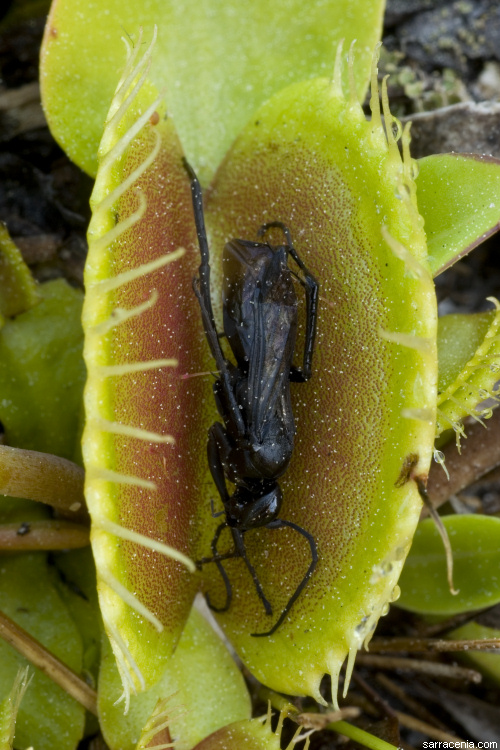
Arrival:
Early Sunday morning, I drove to a parking lot in Wilmington and waited for Mark. I intended to pass a few minutes reviewing
maps, but I had little time to do so because
Mark arrived almost immediately. We greeted and exchanged a few pleasantries, discussed the strategy for the day, and
then without further delay began our travels--it was to be a long day, and we had little time to dilly-dally.
Our first location was within Wilmington city limits (New Hanover County). Mark referred to it as the Wilmington
Nature Trail. It is
still unclear to me who owns this, but basically someone had constructed a trail along a sunny seepage
in a forested patch of as-yet-undeveloped Wilmington woods. Carnivorous plants were abundant. Unfortunately,
the site had been
augmented by the addition of non-native species such as Sarracenia leucophylla. As a
result, it was impossible to tell what was really native and what was artificial. For example, the site had
Sarracenia minor, a very rare plant in North Carolina. If it is native, this would be
an important site to preserve, but with the Sarracenia leucophylla present,
conservationists are likely to dismiss the Sarracenia minor as also being non-native.
Nice image of the Dionaea feasting, eh? I thought it an appropriate image to start the show.
Here is another, showing more of the plant.